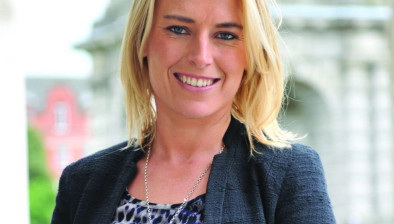Review fails to establish how often NDAs are used in Irish sexual harassment disputes

Roderic O'Gorman
A government review has failed to establish how often non-disclosure agreements (NDAs) are used in settlements following sexual harassment allegations brought within Irish workplaces.
The #MeToo movement which exploded in 2017 shone a spotlight on the use of NDAs in sexual harassment allegations, as women worldwide spoke out about feeling “silenced” by agreements struck with employers.
The Irish government commissioned a review into the use and prevalence of NDAs in discrimination and sexual harassment disputes in Ireland after Independent Senator Lynne Ruane proposed a private member’s bill to introduce new legal rights for employees to receive legal advice before signing an NDA.
The 65-page report published today concludes that NDAs are “commonly used in a range of contexts within Ireland”, but that it is difficult to establish their use and prevalence in cases of sexual harassment and discrimination due to the “inherent secrecy of these contracts”.
The report adds: “There would appear to be a consensus among all stakeholders that some change is needed. However, there are differing perspectives on the optimum legislative response to the challenges presented by the use of NDAs in potentially unethical circumstances.
“The report describes how some commentators and practitioners are in favour of the effective prohibition of NDAs in cases of sexual harassment or discrimination, while others favour their regulation, but still see an important role for them in the ethical resolution of disputes and worry of unintended consequences should they be prohibited.”
Roderic O’Gorman, the minister for children, equality, disability, integration and youth, said: “The use of NDAs to silence victims of sexual harassment or discrimination is an issue that has rightly come under increased scrutiny in recent years.
“Given the many brave women who shared their #MeToo experiences, thereby lending their voice to those silenced by NDAs, it is particularly appropriate that this report be launched on the eve of International Women’s Day.
“As NDAs are confidential agreements, they are notoriously difficult to research, so this report is an important step to learning more about this key equality issue and will help to inform our policies.”









